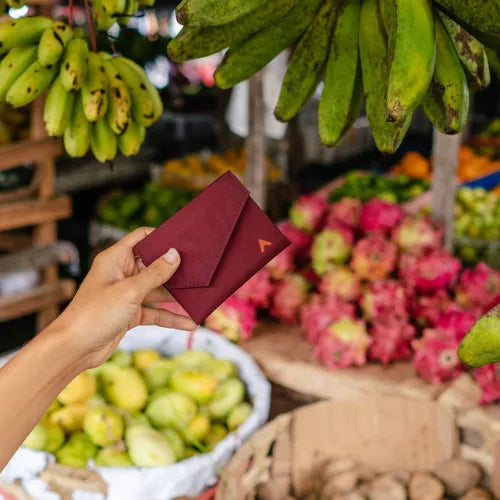
Pickpocket Theft Abroad: How Common is it and How Can You Be Careful
It’s important to be alert and stay safe no matter where you are. But it is especially important when traveling abroad. Should something happen to you or the items you brought with you, dealing with those issues can be difficult even in the safest of countries.
Many countries around the world are safe. Even some “less safe” countries are occasionally safer than the United States on many crime-related metrics. But one type of crime that we are frequently warned about when traveling abroad is pickpocketing. Pickpocketing appears to be so common that if you Google “[country] pickpocketing,” chances are you will receive warnings that there is a pickpocketing problem in that country, especially on trains and buses and almost always targeting tourists.

But is pickpocketing a real problem? And how much of a problem is it?
The Real Risks of Pickpocketing
The truth is that there are no statistics kept about pickpocketing, so no one truly knows the rate of pickpocketing in any country – not even the United States. Most pickpocketing is unreported and unrecorded. Many countries have no mechanism in place to arrest or locate pickpockets either, so there is no reason for them to track these statistics.
In order to attempt to study this, a British based insurance agency tried to examine mentions of the word “pickpocket” on travel sites and review sites, but this is both unscientific for many reasons and, despite claims calling pickpocketing common, they only found that fewer than 300 people out of 1,000,000 reviews mentioned pickpocketing in the “most dangerous” European country for pickpockets: Italy.
Not exactly earth shattering numbers.
So, we need to rely on anecdotes. Anecdotally, pickpocketing is extremely common in big, crowded cities with a lot of tourists. We may never know the exact numbers, but there are countless stories about it so we should assume that pickpocketing exists – though perhaps not to the degree that some people worry about, but a real problem nonetheless.
With that in mind, pickpocketing is rarely part of some elaborate act. Most of the time it occurs because someone leaves their wallet in a very easy to steal place, sometimes even with money sticking out. So, if you are traveling abroad and want to be careful, consider the following:
- Bring Two Wallets – First and foremost, you need to prepare for the idea of pickpocketing just in case that does happen. To do that, you’ll want to make sure that you have two wallets – one wallet with your passport and the items you need that you use to get on and off the airplane, the other wallet where you carry as little with you as possible. Leave the passport wallet at the hotel in a safe along with a backup card, and take the other wallet with as little cash and card as possible with you so that if your wallet is stolen there is much less to navigate. Second wallets can also be smaller and easier to conceal, making theft harder.
- Try Not to Be Clueless – Pickpockets target people that are not paying attention to their wallet, with their wallet in an easy to grab place. For example, an open purse, the front of a backpack, or a back pocket while you’re taking a camera. A small, front pocket wallet that is deep in your pocket that you put your hand over while in crowded areas makes you much less likely to be robbed than if you have a big wallet in easy view in a crowded space and you’re not paying attention.
- Get a Belt Loop Wallet Holder – We’re developing some really cool passport wallets that will have other protection against theft, but until we release those products, consider looking online for what’s know as a “Travel Loop Belt Pouch.” Some of these come with wallet features, but these are not recommended, as the money falls out and moves around too much. But you can place your wallet in the pouch, connect it to your belt, and it makes pickpocketing much more difficult.
You should also be aware of when pickpocketing is most likely to occur and be extra vigilant during that timeframe. It is most likely to occur in tourist heavy areas, in major busy cities, and at times when it’s crowded enough for someone to take something without being noticed. That is why the most common places to get pickpocketed are tourist attractions in Milan, Paris, and Barcelona.
Pickpocketing is only profitable if it can be completed in large numbers in secret, and those are the situations when there are enough tourists in one location to get the number of wallets they need to make it worth it.
Bonus Question: Why Isn’t There More Pickpocketing in the United States?
Paris, Milan, Barcelona – these common pickpocket regions are safe, wealthy, big cities with low crime rates. The United States has those too, so why don’t more people get pickpocketed in the US?
No one really knows the reason for this, but:
- There Are Pickpockets – Pickpocketing is not as common, but it does occur, especially in Las Vegas and New York City – two places with a lot of tourists in a compact, crowded location. There are not many places like that in the US.
- Time is Money – Cost of living is so expensive that pickpocketing as a crime is not as profitable. The number of wallets someone would have to pick without getting caught is often too many for the region.
- Violence – The United States has far more guns and more murders than other major cities, especially in Europe. Pickpocketing often feels less safe.
- Higher Crime – Lastly, theft is considered a more serious crime in many states, and may be more difficult to pull off as well due to our higher security and more cameras.
- No Public Transportation – Pickpocketing is also more common on public transportation, because it’s easier to get away when you can hop aboard a train. The US, outside of a few major cities, does not have very good public transportation, which means it’s harder to escape.
It’s unclear why pickpocketing is not as common in the United States but there are many theories. Still, even in the US, it’s good to keep an eye on your wallet, use a front pocket wallet, and always carry as little on you as possible.




Leave a comment
This site is protected by hCaptcha and the hCaptcha Privacy Policy and Terms of Service apply.